Fleurs du Mal Magazine


Or see the index
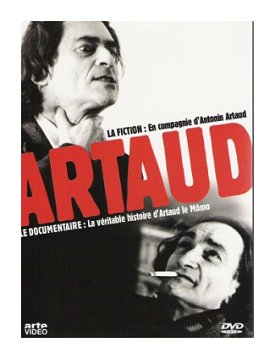 Van Gogh / Artaud. The Man Suicided by Society ♦ A few days before the opening of a van Gogh exhibition in Paris in 1947, gallery owner Pierre Loeb suggested that Antonin Artaud (1896-1948) write about the painter. Challenging the thesis of alienation, Artaud was determined to show how van Gogh’s exceptional lucidity made lesser minds uncomfortable.
Van Gogh / Artaud. The Man Suicided by Society ♦ A few days before the opening of a van Gogh exhibition in Paris in 1947, gallery owner Pierre Loeb suggested that Antonin Artaud (1896-1948) write about the painter. Challenging the thesis of alienation, Artaud was determined to show how van Gogh’s exceptional lucidity made lesser minds uncomfortable.
Wishing to prevent him from uttering certain “intolerable truths”, those who were disturbed by his painting drove him to suicide.
Based on the categories and the unusual designations put forward by Artaud in Van Gogh, the Man Suicided by Society, the exhibition will comprise some forty paintings, a selection of van Gogh’s drawings and letters, together with graphic works by the poet-illustrator.
The title of the exhibition is based on the title of Antonin Artaud’s book, Van Gogh the Man Suicided by Society Editions Gallimard, 1974
Musée d’Orsay Paris – until 6 july 2014
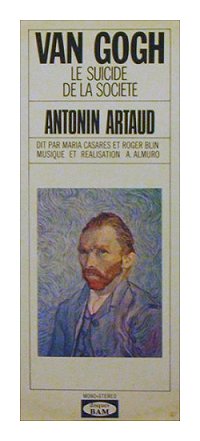
Publication:
Vincent Van Gogh-Antonin Artaud :
le suicidé de la société
Number of pages 192 , €39.00
EAN 9782370740038
Dimensions 34 x 25 cm
Publisher Skira Flammarion
Museum Musée d’Orsay
Language French
fleursdumal.nl magazine for art & literature
More in: Antonin Artaud, Art & Literature News, Artaud, Antonin, Suicide, Vincent van Gogh, Vincent van Gogh
The Sorrows of Young Werther (21) by J.W. von Goethe
JULY 18. 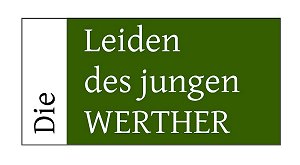 Wilhelm, what is the world to our hearts without love? What is a magic-lantern without light? You have but to kindle the flame within, and the brightest figures shine on the white wall; and, if love only show us fleeting shadows, we are yet happy, when, like mere children, we behold them, and are transported with the splendid phantoms. I have not been able to see Charlotte to-day. I was prevented by company from which I could not disengage myself. What was to be done? I sent my servant to her house, that I might at least see somebody to-day who had been near her. Oh, the impatience with which I waited for his return! the joy with which I welcomed him! I should certainly have caught him in my arms, and kissed him, if I had not been ashamed.
Wilhelm, what is the world to our hearts without love? What is a magic-lantern without light? You have but to kindle the flame within, and the brightest figures shine on the white wall; and, if love only show us fleeting shadows, we are yet happy, when, like mere children, we behold them, and are transported with the splendid phantoms. I have not been able to see Charlotte to-day. I was prevented by company from which I could not disengage myself. What was to be done? I sent my servant to her house, that I might at least see somebody to-day who had been near her. Oh, the impatience with which I waited for his return! the joy with which I welcomed him! I should certainly have caught him in my arms, and kissed him, if I had not been ashamed.
It is said that the Bonona stone, when placed in the sun, attracts the rays, and for a time appears luminous in the dark. So was it with me and this servant. The idea that Charlotte’s eyes had dwelt on his countenance, his cheek, his very apparel, endeared them all inestimably to me, so that at the moment I would not have parted from him for a thousand crowns. His presence made me so happy! Beware of laughing at me, Wilhelm. Can that be a delusion which makes us happy?
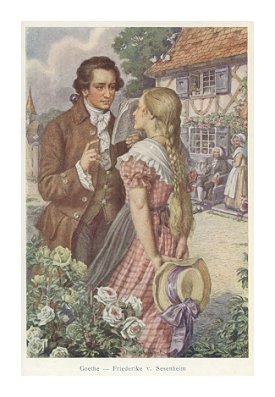
JULY 19. “I shall see her today!” I exclaim with delight, when I rise in the morning, and look out with gladness of heart at the bright, beautiful sun. “I shall see her today!” And then I have no further wish to form: all, all is included in that one thought.
The Sorrows of Young Werther (Die Leiden des jungen Werther) by J.W. von Goethe. Translated by R.D. Boylan.
To be continued
fleursdumal.nl magazine for art & literature
More in: -Die Leiden des jungen Werther, Goethe, Johann Wolfgang von
Tom Lanoye en het stuk der stukken: Shakespeares Hamlet ♦ Guy Cassiers, Tom Lanoye en het stuk der stukken: Shakespeares Hamlet. Cassiers regisseert deze bewerking met een grote cast, samengesteld uit de ensembles van Toneelhuis en Toneelgroep Amsterdam. 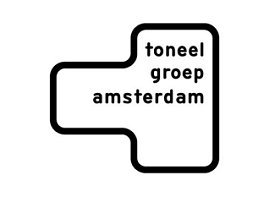 Het is de eerste coproductie in een reeks van vier, gepland tussen 2014 en 2016.
Het is de eerste coproductie in een reeks van vier, gepland tussen 2014 en 2016.
De oude koning is vermoord door zijn broer, Claudius. De geest van de dode koning roept zijn zoon, Hamlet, op tot wraak. Hamlet wordt verscheurd tussen zijn verlangen om de moordenaar te straffen en zijn liefde voor zijn overspelige moeder, die kort na de moord met Claudius hertrouwde. Zo begint de bekendste tragedie ter wereld.
Shakespeare schreef zijn Hamlet in tijden van grote politieke en sociale verwarring. Tom Lanoye schrijft een Hamlet voor de eenentwintigste eeuw, een tijd van niet minder grote politieke en sociale verwarring. Voor zijn bewerking duikt hij in de psychologie van de adolescentie. De ‘halfwas’ Hamlet, gespeeld door Abke Haring, voelt zich verpletterd door de wereld van de volwassenen. Zo ontstaat een personage dat weifelt tussen zelfhaat en zelfoverschatting, tussen minachting voor zichzelf en minachting voor de ‘onzuivere’ wereld die door oorlog verscheurd wordt.
De getormenteerde monologen van Hamlet zijn hartenkreet en uitdrijving, aanklacht en bezwering tegelijk. Hamlet raakt niet alleen verstrikt in de netten van de waanzin op zich, maar ook in de theatraliteit waarmee hij zichzelf ensceneert. Hij is een mens zoals wij allemaal: inconsequent, meerlagig, dubbelslachtig, ambigu. In het nastreven van zijn ambities en in het bestrijden van zijn angsten komt hij oog in oog te staan met zichzelf: Hamlet vs Hamlet.
Uit Hamlet vs Hamlet
‘Wat is het toch dat wat u van mij verlangt?
Waarom bezoekt u mij, op elk moment,
Op ieder uur, zo dag zo nacht, zo fel?
U maakt mijn leven zo tot gruwel dat
Ik, speelbal der natuur, verwrongen raak
Door hersenspinsels en begeertes die
Mij dreigen te vervreemden van elk mens.
Ik smeek u: spreek! Wat wilt u dat ik doe?
Wanneer, waartoe, met welk geweld — en hoe?’
CAST
Abke Haring: Hamlet
Chris Nietvelt: Gertrude
Eelco Smits: Laërtes
Gaite Jansen: Ophelia
Johan van Assche: Claudius, de geest van Hamlets vader
Katelijne Damen: de geest van Yorick
Kevin Janssens: Guildenstern, grafdelver, toneelspeler
Marc van Eeghem: Rozenkrantz, grafdelver, toneelspeler
Roeland Fernhout: Polonius
Guy Cassiers: ‘In de bewerking die Tom Lanoye van Hamlet maakt staat de groei naar de volwassenwording centraal. 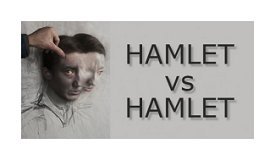 In dat proces speelt de verbeelding een belangrijke rol. Hamlet wordt door zijn eigen verbeelding tegelijk gestimuleerd en geïsoleerd. Uiteindelijk raakt hij verstrikt in zichzelf. Hij bevindt zich in het centrum van de macht, maar gedraagt zich toch als een buitenstaander. Dat is de kern van zijn identiteitscrisis: hij valt niet met zichzelf samen. Hij verbrokkelt in fragmenten. Voor Tom en voor mij is dat ook een metafoor voor de politieke crisis die Europa op dit ogenblik doormaakt: enerzijds is er de ambitie om deel uit te maken van een geglobaliseerde wereld, anderzijds groeit de angst om het overzicht te verliezen en wordt er opnieuw gezocht naar lokale identiteit en zekerheid. Hamlet blijft een Europees stuk bij uitstek.’
In dat proces speelt de verbeelding een belangrijke rol. Hamlet wordt door zijn eigen verbeelding tegelijk gestimuleerd en geïsoleerd. Uiteindelijk raakt hij verstrikt in zichzelf. Hij bevindt zich in het centrum van de macht, maar gedraagt zich toch als een buitenstaander. Dat is de kern van zijn identiteitscrisis: hij valt niet met zichzelf samen. Hij verbrokkelt in fragmenten. Voor Tom en voor mij is dat ook een metafoor voor de politieke crisis die Europa op dit ogenblik doormaakt: enerzijds is er de ambitie om deel uit te maken van een geglobaliseerde wereld, anderzijds groeit de angst om het overzicht te verliezen en wordt er opnieuw gezocht naar lokale identiteit en zekerheid. Hamlet blijft een Europees stuk bij uitstek.’
# Meer over de voorstellingen op de website van tga
fleursdumal.nl magazine
More in: Art & Literature News, Shakespeare, William, The talk of the town, THEATRE
 ZUIDELIJK TONEEL
ZUIDELIJK TONEEL
JULIUS CAESAR
kunnen woorden doden?
Regisseur Mirjam Koen ensceneert Julius Caesar van William Shakespeare, de eerste van zijn vijf grote tragedies. In een wereld vol list en bedrog navigeren Shakespeare’s personages tussen eigenbelang en landsbelang. Naast de acteurs speelt in iedere stad een lokale drumband mee. Met ritmische en opzwepende muziek zijn ze een medespeler in dit politieke drama over een continu gevoel van persoonlijke onveiligheid en oorlogsdreiging.
Julius Caesar dreigt van Rome een monarchie te maken, om zo de absolute macht in handen te krijgen. Een aantal senatoren vreest dat ze totaal worden buitengesloten van het dagelijks bestuur. Afgunst en jaloezie voeren de boventoon. Ze stellen elkaar en zichzelf gewetensvragen: kan ik doorleven zonder in te grijpen? Maar ieder woord, al is het gefluisterd, kan dodelijk zijn. Een complot wordt gesmeed om Caesar te doden en zo de republiek te redden. Brutus, de meest gerespecteerde en gewetensvolle politicus, zal echter aan hun kant moeten staan, zodat het volk niet in opstand komt. Want een onrustig volk is een gevaarlijk volk.
Shakespeare portretteert tijdloos en meeslepend een groep mensen die niet langer kan toekijken. Hij laat hun handelen zien en de consequenties hiervan. De taal is het wapen van degene die spreekt en retoriek viert hoogtij. Julius Caesar handelt over een tijdperk op drift. De angst regeert en dat maakt het volk rijp voor manipulatie en demagogie.
première 10 maart 2014, Theaters Tilburg
tournee 8 maart t/m 30 april 2014
tekst William Shakespeare
vertaling Tom Kleijn
bewerking Matthijs Rümke, Martine Manten
regie Mirjam Koen
spel Guy Clemens, Justus van Dillen, Cas Enklaar, Han Kerckhoffs, José Kuijpers, Saar Vandenberghe, Mattias Van de Vijver, Xander van Vledder, Abel de Vries (stage)
slagwerk Fiona Digney, Robin Eggers, Mei-Yi Lee, Julien Moussiegt, Marcel van Wensen, Che-sheng Wu
lokale drumbands: Tilburg, Turnhout – Koninklijke Harmonie Oefening en Uitspanning Goirle – Brugge – Koninklijke Harmonie De Verbroedering Beveren-Roeselare – Nijmegen – Drumfanfare Michaël, Slagwerkgroep Neerbosch-Oost, Jeugddrumfanfare De Stefaantjes – Leiden, Den Haag, Zoetermeer – Chr. Drum- en Showfanfare Door Vriendschap Sterk Katwijk – Eindhoven – Fanfare en Drumband St. Willibrordus Wintelre – Utrecht – Drumfanfare Jonathan Zeist Zwolle – Nooit Gedacht Windesheim – Meppel – Muziekvereniging Euphonia Nijeveen Haarlem, Amsterdam – Damiate Band Haarlem – ‘s-Hertogenbosch – Drumfanfare Amantius – Stadskanaal, Groningen – Muziekvereniging Crescendo Stadskanaal, leerlingen Muziekschool Zuid-Groningen – Almere – Drumfanfare Almere – Leeuwarden, Drachten – Pasveer Leeuwarden – Capelle aan den IJssel – Drumfanfare DKV – Heerlen – Drumband Marijke Hoensbroek Weert – Gouda – Muziekvereniging Kunst na de Arbeid Moordrecht – Arnhem – Harmonie St. Caecilia Doornenburg Hengelo – Drumfanfare Hengelo – Wageningen – Muziekvereniging OBK Bennekom Alkmaar – Slagwerkgroep Da Capo – Roosendaal, Tilburg, Breda – Harmonie en Tamboerkorps St. Cecilia Zegge – Rotterdam – Drumfanfare Excelsior Rotterdam
componist / muzikaal begeleider Rob Verdurmen
 dramaturgie Martine Manten
dramaturgie Martine Manten
decorontwerp Marc Warning
kostuumontwerp Arien de Vries
lichtontwerp Gé Wegman
kostuums Jolanda van de Ven, Jeanette van Vliet
regie-assistentie Koen van Hensbergen (stage),Tim Verbeek
kleedsters Jolanda van de Ven, Jeanette van Vliet, Kyra Wessel
techniek Stan Bannier, Leon Bartels, Paul Francot, Emile van Gils, Wilfried van der Grinten, Dick Huetink, Guido Langendoen, Peer van Sprang, Aron Zeijlmans (stage)
decorbouw Douwe Hibma
foto Cas Enklaar Milan Gies
fleursdumal.nl magazine for art & literature
More in: Shakespeare, William, THEATRE

The Sorrows of Young Werther (20)
by J.W. von Goethe
JULY 16.
How my heart beats when by accident I touch her finger, or my feet meet hers under the table! I draw back as if from a furnace; but a secret force impels me forward again, and my senses become disordered.
Her innocent, unconscious heart never knows what agony these little familiarities inflict upon me. Sometimes when we are talking she lays her hand upon mine, and in the eagerness of conversation comes closer to me, and her balmy breath reaches my lips,–when I feel as if lightning had struck me, and that I could sink into the earth. And yet, Wilhelm, with all this heavenly confidence,–if I know myself, and should ever dare–you understand me. No, no! my heart is not so corrupt, it is weak, weak enough but is not that a degree of corruption?
She is to me a sacred being. All passion is still in her presence: I cannot express my sensations when I am near her. I feel as if my soul beat in every nerve of my body. There is a melody which she plays on the piano with angelic skill,–so simple is it, and yet so spiritual! It is her favourite air; and, when she plays the first note, all pain, care, and sorrow disappear from me in a moment.
I believe every word that is said of the magic of ancient music. How her simple song enchants me! Sometimes, when I am ready to commit suicide, she sings that air; and instantly the gloom and madness which hung over me are dispersed, and I breathe freely again.
The Sorrows of Young Werther (Die Leiden des jungen Werther) by J.W. von Goethe. Translated by R.D. Boylan.
To be continued
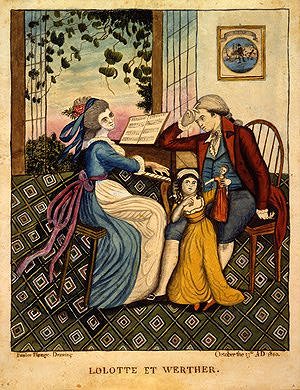
fleursdumal.nl magazine for art & literature
More in: -Die Leiden des jungen Werther, Goethe, Johann Wolfgang von
![]()
William Butler Yeats
(1865-1939)
A Coat
I made my song a coat
Covered with embroideries
Out of old mythologies
From heel to throat;
But he fools caught it,
Wore it in the world’s eyes
As though they’d wrought it.
Song, let them take it,
For there’s more enterprise
In walking naked.
Who comes at need, although not now as once
A clear articulation in the air,
But inwardly, surmise companions
Beyond the fling of the dull ass’s hoof
— Ben Jonson’s phrase — and find when June is come
At Kyle-na-no under that ancient roof
A sterner conscience and a friendlier home,
I can forgive even that wrong of wrongs,
Those undreamt accidents that have made me
— Seeing that Fame has perished this long while.
Being but a part of ancient ceremony —
Notorious, till all my priceless things
Are but a post the passing dogs defile.
William Butler Yeats poetry
fleursdumal.nl magazine
More in: Archive Y-Z, Yeats, William Butler

The Sorrows of Young Werther (19)
by J.W. von Goethe
JULY 13.
No, I am not deceived. In her dark eyes I read a genuine interest in me and in my fortunes. Yes, I feel it; and I may believe my own heart which tells me–dare I say it?–dare I pronounce the divine words?–that she loves me!
That she loves me! How the idea exalts me in my own eyes! And, as you can understand my feelings, I may say to you, how I honour myself since she loves me!
Is this presumption, or is it a consciousness of the truth? I do not know a man able to supplant me in the heart of Charlotte; and yet when she speaks of her betrothed with so much warmth and affection, I feel like the soldier who has been stripped of his honours and titles, and deprived of his sword.
The Sorrows of Young Werther (Die Leiden des jungen Werther) by J.W. von Goethe. Translated by R.D. Boylan.
To be continued
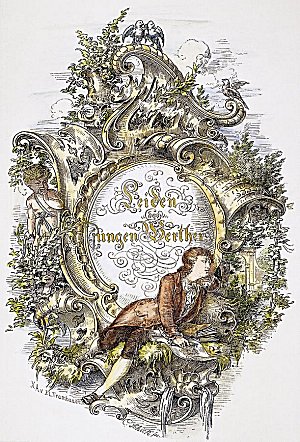
fleursdumal.nl magazine for art & literature
More in: -Die Leiden des jungen Werther, Goethe, Johann Wolfgang von

Rob Stuart: Pregnant Pause
fleursdumal.nl magazine
More in: *Concrete + Visual Poetry P-T, Rob Stuart, Rob Stuart, Stuart, Rob
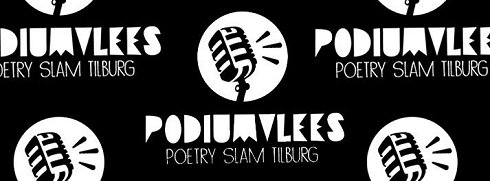
Tweede Podiumvlees Poetry Slam in Tilburg
Op zondagmiddag 16 maart aanstaande beleeft de nieuwe Tilburgse Poetry Slam Podiumvlees haar tweede editie. Tijdens deze Poetry Slam zullen bekende en minder bekende (slam)dichters in drie rondes de poëtische strijd met elkaar aangaan. Op het spel staat een plaats in de Tilburgse Stedelijke Finale, die in september 2014 tijdens het Incubate-Festival gehouden wordt. De Poetry Slam vindt op zondag 16 maart plaats in de Hall of Fame. Aanvang 15.00u, toegang is gratis.
In deze editie van Podiumvlees gaan onder anderen Gerard Scharn, Jolies Heij en Jonathan Griffioen de strijd met elkaar aan om een plaats in de Stedelijke Finale met elkaar aan. Zij worden beoordeeld door zowel een vakjury als een publieksjury. De vakjury bestaat uit dichter Daan Doesborgh en dichter Martin Beversluis.
Podiumvlees is een initiatief van de Tilburgse slamdichters Martin Beversluis en Daan Taks. Zij organiseren komend seizoen vier voorrondes en een Stedelijke Finale van Podiumvlees. De winnaar van de Stedelijke Finale wint een ticket voor het Nederlands Kampioenschap Poetry Slam 2015 in Utrecht. Daarnaast maakt Uitgeverij teleXpress een verzamelbundel met daarin werk van alle dichters en dichteressen die dit seizoen meedoen aan Podiumvlees. Deze verzamelbundel wordt tijdens de Stedelijke Finale gepresenteerd.

Podiumvlees is altijd op zoek naar nieuwe deelnemers. Wie meer informatie wil, kan op facebook terecht: www.facebook.com/podiumvlees
fleursdumal.nl magazine for art & literature
More in: Art & Literature News, Beversluis, Martin, Poetry Slam
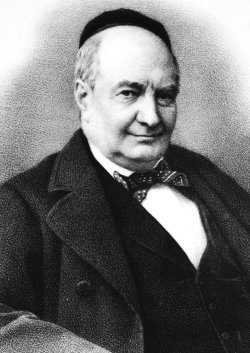
Charles Sainte-Beuve
(1804-1869)
Les rayons jaunes
Les dimanches d’été, le soir, vers les six heures,
Quand le peuple empressé déserte ses demeures
Et va s’ébattre aux champs,
Ma persienne fermée, assis à ma fenêtre,
Je regarde d’en haut passer et disparaître
Joyeux bourgeois, marchands,
Ouvriers en habits de fête, au coeur plein d’aise ;
Un livre est entr’ouvert près de moi, sur ma chaise :
Je lis ou fais semblant ;
Et les jaunes rayons que le couchant ramène,
Plus jaunes ce soir-là que pendant la semaine,
Teignent mon rideau blanc.
J’aime à les voir percer vitres et jalousie ;
Chaque oblique sillon trace à ma fantaisie
Un flot d’atomes d’or ;
Puis, m’arrivant dans l’âme à travers la prunelle,
Ils redorent aussi mille pensers en elle,
Mille atomes encor.
Ce sont des jours confus dont reparaît la trame,
Des souvenirs d’enfance, aussi doux à notre âme
Qu’un rêve d’avenir :
C’était à pareille heure (oh ! je me le rappelle)
Qu’après vêpres, enfants, au choeur de la chapelle,
On nous faisait venir.
La lampe brûlait jaune, et jaune aussi les cierges ;
Et la lueur glissant aux fronts voilés des vierges
Jaunissait leur blancheur ;
Et le prêtre vêtu de son étole blanche
Courbait un front jauni, comme un épi qui penche
Sous la faux du faucheur.
Oh ! qui dans une église à genoux sur la pierre,
N’a bien souvent, le soir, déposé sa prière,
Comme un grain pur de sel ?
Qui n’a du crucifix baisé le jaune ivoire ?
Qui n’a de l’Homme-Dieu lu la sublime histoire
Dans un jaune missel ?
Mais où la retrouver, quand elle s’est perdue,
Cette humble foi du coeur, qu’un ange a suspendue
En palme à nos berceaux ;
Qu’une mère a nourrie en nous d’un zèle immense ;
Dont chaque jour un prêtre arrosait la semence
Aux bords des saints ruisseaux ?
Peut-elle refleurir lorsqu’a soufflé l’orage,
Et qu’en nos coeurs l’orgueil debout, a dans sa rage
Mis le pied sur l’autel ?
On est bien faible alors, quand le malheur arrive
Et la mort… faut-il donc que l’idée en survive
Au voeu d’être immortel !
J’ai vu mourir, hélas ! ma bonne vieille tante,
L’an dernier ; sur son lit, sans voix et haletante,
Elle resta trois jours,
Et trépassa. J’étais près d’elle dans l’alcôve ;
J’étais près d’elle encor, quand sur sa tête chauve
Le linceul fit trois tours.
Le cercueil arriva, qu’on mesura de l’aune ;
J’étais là… puis, autour, des cierges brûlaient jaune,
Des prêtres priaient bas;
Mais en vain je voulais dire l’hymne dernière ;
Mon oeil était sans larme et ma voix sans prière,
Car je ne croyais pas.
Elle m’aimait pourtant… ; et ma mère aussi m’aime,
Et ma mère à son tour mourra ; bientôt moi-même
Dans le jaune linceul
Je l’ensevelirai ; je clouerai sous la lame
Ce corps flétri, mais cher, ce reste de mon âme ;
Alors je serai seul ;
Seul, sans mère, sans soeur, sans frère et sans épouse ;
Car qui voudrait m’aimer, et quelle main jalouse
S’unirait à ma main ?…
Mais déjà le soleil recule devant l’ombre,
Et les rayons qu’il lance à mon rideau plus sombre
S’éteignent en chemin…
Non, jamais à mon nom ma jeune fiancée
Ne rougira d’amour, rêvant dans sa pensée
Au jeune époux absent ;
Jamais deux enfants purs, deux anges de promesse
Ne tiendront suspendu sur moi, durant la messe,
Le poêle jaunissant.
Non, jamais, quand la mort m’étendra sur ma couche,
Mon front ne sentira le baiser d’une bouche,
Ni mon oeil obscurci
N’entreverra l’adieu d’une lèvre mi-close !
Jamais sur mon tombeau ne jaunira la rose,
Ni le jaune souci !
Ainsi va ma pensée, et la nuit est venue ;
Je descends, et bientôt dans la foule inconnue
J’ai noyé mon chagrin :
Plus d’un bras me coudoie ; on entre à la guinguette,
On sort du cabaret ; l’invalide en goguette
Chevrotte un gai refrain.
Ce ne sont que chansons, clameurs, rixes d’ivrogne,
Ou qu’amours en plein air, et baisers sans vergogne,
Et publiques faveurs ;
Je rentre : sur ma route on se presse, on se rue ;
Toute la nuit j’entends se traîner dans ma rue
Et hurler les buveurs.
Charles Sainte-Beuve poetry
fleursdumal.nl magazine
More in: Archive S-T, CLASSIC POETRY

The Sorrows of Young Werther (18)
by J.W. von Goethe
JULY 11.
Madame M–is very ill. I pray for her recovery, because Charlotte shares my sufferings. I see her occasionally at my friend’s house, and to-day she has told me the strangest circumstance. Old M–is a covetous, miserly fellow, who has long worried and annoyed the poor lady sadly; but she has borne her afflictions patiently. A few days ago, when the physician informed us that her recovery was hopeless, she sent for her husband (Charlotte was present), and addressed him thus: “I have something to confess, which, after my decease, may occasion trouble and confusion. I have hitherto conducted your household as frugally and economically as possible, but you must pardon me for having defrauded you for thirty years. At the commencement of our married life, you allowed a small sum for the wants of the kitchen, and the other household expenses. When our establishment increased and our property grew larger, I could not persuade you to increase the weekly allowance in proportion: in short, you know, that, when our wants were greatest, you required me to supply everything with seven florins a week. I took the money from you without an observation, but made up the weekly deficiency from the money-chest; as nobody would suspect your wife of robbing the household bank. But I have wasted nothing, and should have been content to meet my eternal Judge without this confession, if she, upon whom the management of your establishment will devolve after my decease, would be free from embarrassment upon your insisting that the allowance made to me, your former wife, was sufficient.”
I talked with Charlotte of the inconceivable manner in which men allow themselves to be blinded; how any one could avoid suspecting some deception, when seven florins only were allowed to defray expenses twice as great. But I have myself known people who believed, without any visible astonishment, that their house possessed the prophet’s never-failing cruse of oil.
The Sorrows of Young Werther (Die Leiden des jungen Werther) by J.W. von Goethe. Translated by R.D. Boylan.
To be continued
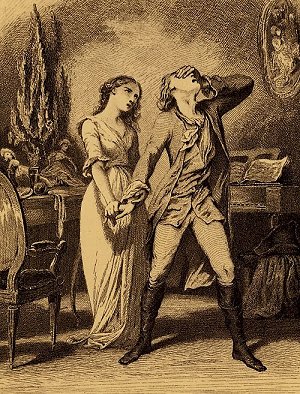
fleursdumal.nl magazine for art & literature
More in: -Die Leiden des jungen Werther, Goethe, Johann Wolfgang von
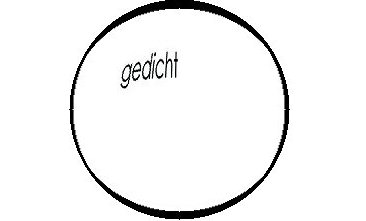
NRC Handelsblad neemt het niet zo nauw met het laatste gedicht van Leo Vroman (1915-2014)
In de NRC van 1 maart 2014 (blz 12) stond het laatste gedicht dat Leo Vroman voor zijn overlijden schreef. NRC Handelsblad drukte het gedicht foutief af. Het eerste woord van de laatste regel stond gedrukt als laatste woord van de voorafgaande regel, waardoor het rijmpaar verdwenen was.
Cornelis W. Schoneveld, oud-docent historische Engelse letterkunde en vertaalwetenschapper aan de Universiteit van Leiden èn medewerker aan fleursdumal.nl, attendeerde de redactie van NRC op de vergissing.
EINDE
Hij lijkt vast minder erg –
die lief bijeengebrachte
hoop spaanders van mijn gedachten –
op mij dan op een berg.
Waar zal die laaiende gestalte
van mij dan uit bestaan
en waar kwam die al te
late eerste vonk vandaan?
Versie NRC
(. . .)
Waar zal die laaiende gestalte
van mij dan uit bestaan
en waar kwam die al te late
eerste vonk vandaan?
De redactie van NRC liet Cornelis Schoneveld weten het niet de moeite waard te vinden om actie te ondernemen op zijn verzoek om de tekst te corrigeren.
Het is ook maar een gedicht natuurlijk.
fleursdumal.nl magazine
More in: Archive U-V, POETRY IN TRANSLATION: SCHONEVELD, The talk of the town, Vroman, Leo
Thank you for reading Fleurs du Mal - magazine for art & literature